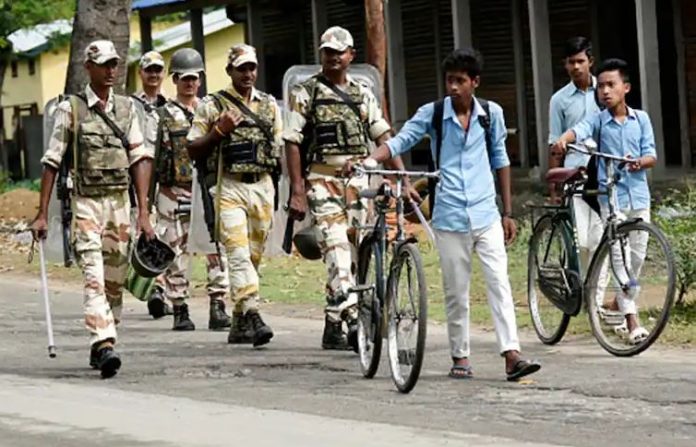The Assam government Thursday said it has extended the Armed Forces (Special Powers) Act, 1958 (AFSPA) in eight districts and one sub-division for six months after a review of the law and order situation. The government, however, withdrew the controversial law from West Karbi Anglong district as the situation there has “considerably improved”. The six-month extension of AFSPA is effective from October 1, Home and Political Department Principal Secretary Niraj Verma said in an order. The order dated October 15 and released on Thursday stated that nine districts and one sub-division were kept under the AFSPA since April 1 as a “disturbed area” after withdrawing the legislation from the rest of the state.
“A review of the law and order and security scenario in Assam in the recent past indicates that the situation has considerably improved in West Karbi Anglong district of the state … The Governor of Assam is pleased to withdraw the declaration of ‘Disturbed Area’ with effect from 01.10.2022 from West Karbi Anglong,” the order said. Tinsukia, Dibrugarh, Charaideo, Sivasagar, Jorhat, Golaghat, Karbi Anglong, and Dima Hasao districts remain in conflict, as does the Cachar sub-division of Lakhipur in the Barak Valley.
The act was enacted in Assam in November 1990 and has been extended every six months since then after a state government review of the situation. Under AFSPA, security forces can conduct operations anywhere and arrest anyone without a warrant. It also provides security forces with some immunity in the event of a failed operation. Civil society organisations and human rights activists have demanded that the “draconian law” be removed from the entire North East, claiming violations of human rights by the armed forces. The call to repeal the act gained traction after 14 civilians were killed by security forces in a botched anti-insurgency operation and retaliatory violence in Nagaland’s Mon district on December 4, 2021.
(With PTI inputs)





